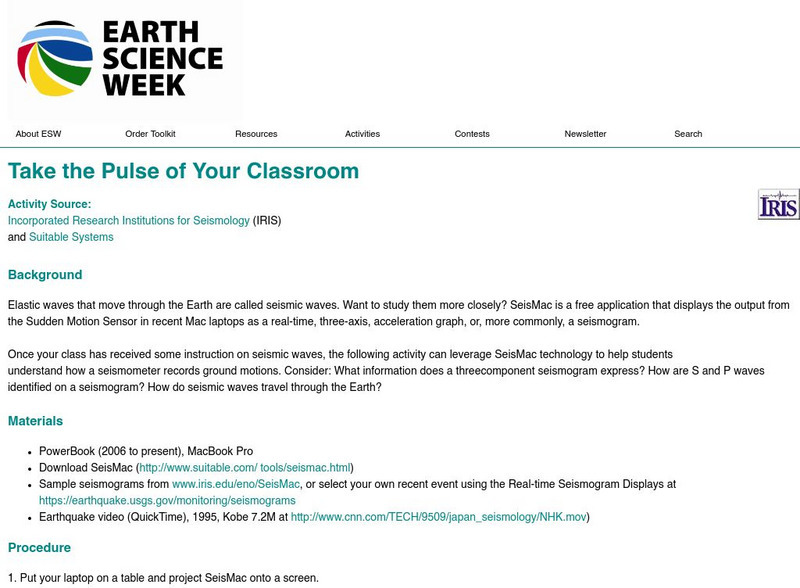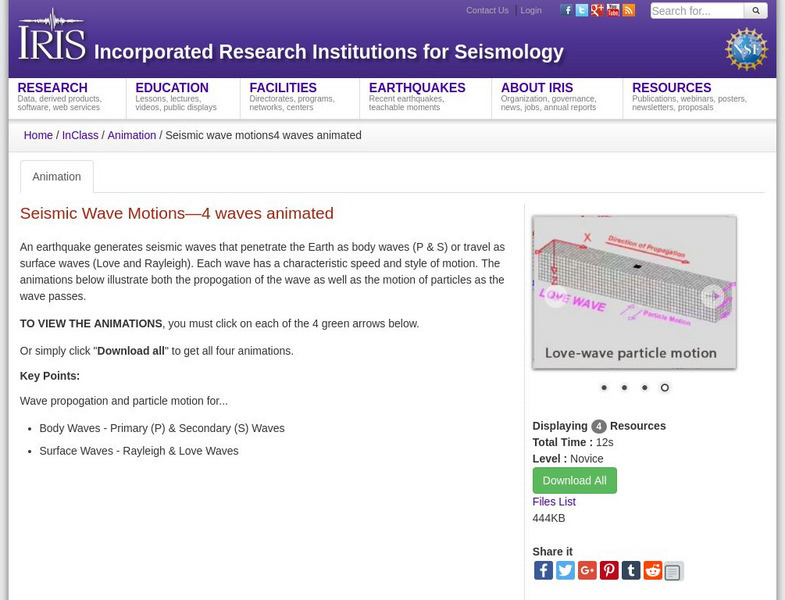Curated OER
Finding Epicenters
In this earthquake activity, students use the seismographs from different locations to determine the epicenter for the earthquake. Students plot the epicenter on a map. This activity has 1 graphic organizer.
Curated OER
What are Earthquakes?
Here is a scientific presentation of earthquakes. The elastic rebound theory is explained, as well as the different types of waves and how they are measured. Just a note: Slide number 15 has a diagram that is upside down. Enable editing...
Curated OER
Epicenters
In this earthquake worksheet, students use seismographs to determine how far away the cities were from the epicenter of an earthquake. This worksheet has 1 graphic organizer.
Curated OER
Finding Epicenters 1
In this finding epicenters worksheet, students complete a table given the "P" and "S" wave arrival times of 6 different earthquakes. Students calculate the difference in arrival time of the waves, the distance to the epicenter, the "P"...
Curated OER
Seismic Waves
Students identify the four types of seismic waves, their characteristics and effects. Then they predict the level of damage each wave might cause in a residential area and test their predictions against several computer animations. ...
Curated OER
Determining Epicenter Distance
In this earthquake worksheet, students determine the distance of the epicenter based on the S-waves and P-waves on a seismograph. This worksheet has 4 problems to solve.
Curated OER
Finding Epicenters
In this earthquake worksheet, students determine the distance of different cities to the epicenter of an earthquake based on the "P" and "S" wave arrivals on the seismographs. This worksheet has 1 graphic organizer and 2 short answer...
TeachEngineering
Teach Engineering: The Strongest Pump of All
In this lesson the students will learn how the heart functions. Students will be introduced to the concept of action potential generation. The lesson will explain how action potential generation causes the electrical current that causes...
Other
Tech Museum: Building for the Big One [Pdf]
This resource presents a project where learners design and build structures that can withstand an earthquake. The project can include an extension where students look at the factors of soil type and proximity to fault in their design....
US Geological Survey
U.s. Geological Survey: Rock'n on Shakey Ground [Pdf]
The basics of earthquake science including factual information about how and why they happen. Also includes some hands-on activities and experiments for students.
American Geosciences Institute
American Geosciences Institute: Earth Science Week: Take the Pulse of Your Classroom
In this activity, students leverage SeisMac technology to understand how a seismometer records ground motions.
CK-12 Foundation
Ck 12: Physical Science: Longitudinal Wave
[Free Registration/Login may be required to access all resource tools.] What a longitudinal wave is, its compressions and rarefactions and what a P wave is.
Incorporated Research Institutions for Seismology
Iris: Seismic Wave Motions
Four animations showing the movements of surface waves and body waves that are created by earthquakes. Includes P, S, Rayleigh, and Love waves.
University of Colorado
University of Colorado: Seismic Waves
Basic definitions and characteristics of the different wave types, diagrams, and speeds of the waves. Has links to information on seismology, earthquakes, and plate tectonics.
Incorporated Research Institutions for Seismology
Iris: How Are Earthquakes Located?
This illustrated fact sheet shows how S and P waves each travel at varying speeds and therefore arrive at seismic stations at different times.
Other
Matter Project: Seismic Waves
Seismic waves are studied to better understand the ground beneath us, the layers of Earth and points of interest for earthquakes. Better understand the types of waves, what substances they may travel through and how, and gain a clearer...
American Geosciences Institute
American Geosciences Institute: Earth Science Week: Modeling Earthquake Waves
Middle schoolers model earthquake waves with a slinky toy.


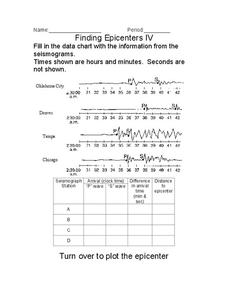


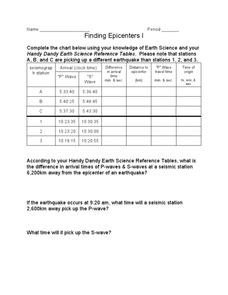



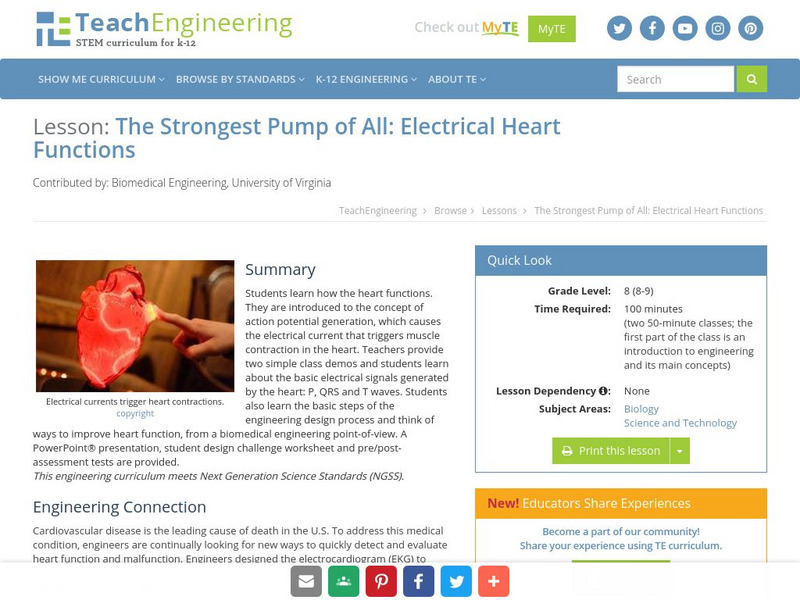
![Tech Museum: Building for the Big One [Pdf] Lesson Plan Tech Museum: Building for the Big One [Pdf] Lesson Plan](http://content.lessonplanet.com/resources/thumbnails/411264/large/bwluav9tywdpy2symdiwmduymc0xmdm2my0xd3vtenpxlmpwzw.jpg?1589993199)
![U.s. Geological Survey: Rock'n on Shakey Ground [Pdf] Handout U.s. Geological Survey: Rock'n on Shakey Ground [Pdf] Handout](https://d15y2dacu3jp90.cloudfront.net/images/attachment_defaults/resource/large/FPO-knovation.png)
